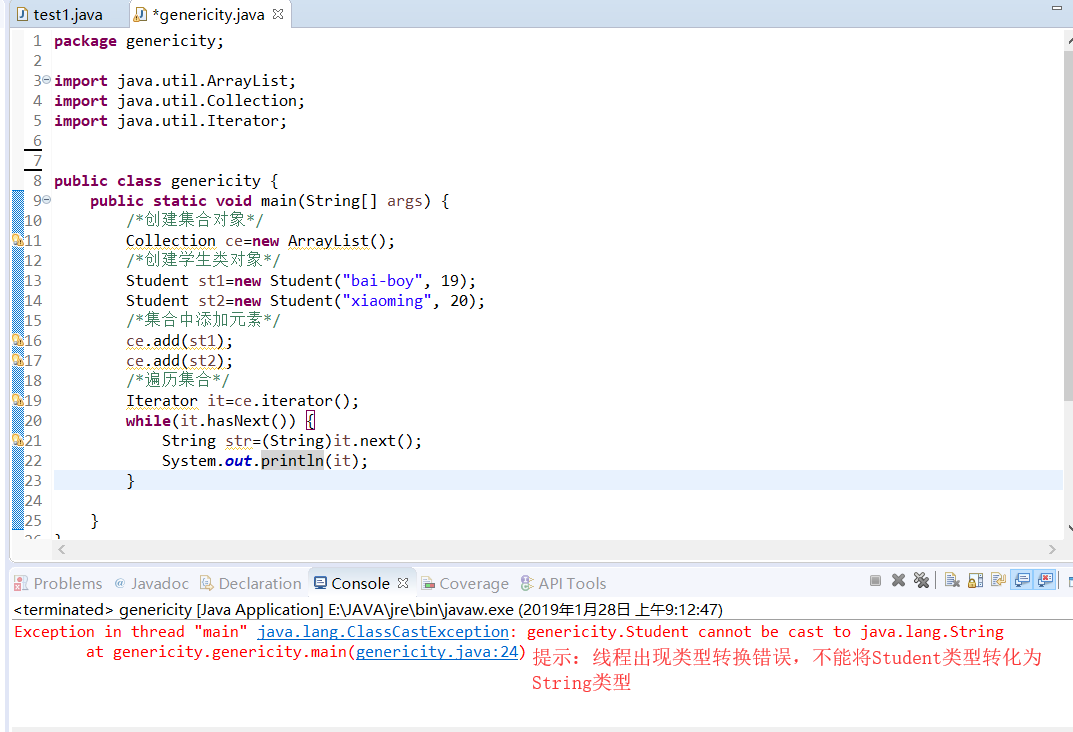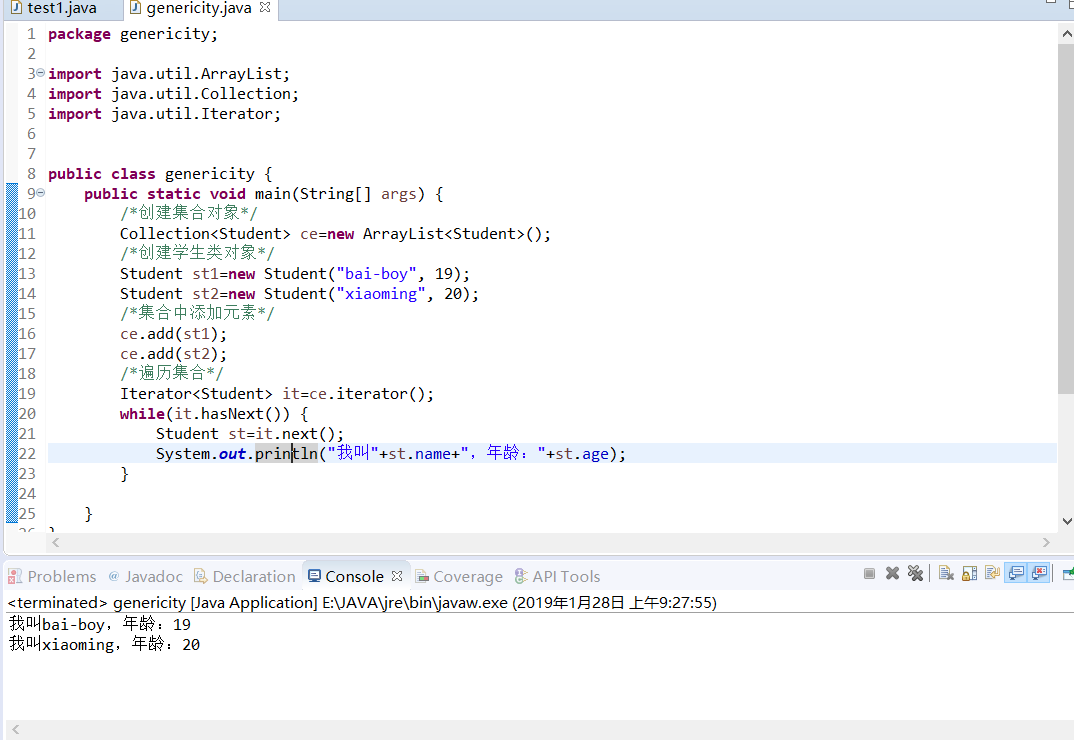1.举例
首先先用集合来写个自定义对象存储并且去遍历。
package genericity; import java.util.ArrayList; import java.util.Collection; import java.util.Iterator; public class genericity { public static void main(String[] args) { /*创建集合对象*/ Collection ce=new ArrayList(); /*创建学生类对象*/ Student st1=new Student("bai-boy", 19); Student st2=new Student("xiaoming", 20); /*集合中添加元素*/ ce.add(st1); ce.add(st2); /*遍历集合*/ Iterator it=ce.iterator(); while(it.hasNext()) { String str=(String)it.next(); System.out.println(it); } } } class Student{ String name; int age; public Student(String name, int age) { this.name = name; this.age = age; } }
但是运行会报错。

这个错误呢是由于创建的Student对象不能转化为String。那么我们这里Java给我们一个机制就是泛型。
泛型:是一种广泛的类型,它把明确数据类型的工作提前到了编译时期而不是运行时期。
这里主要借鉴了数组。数组都是提前明确数据类型,不是同一的数据类型就不能添加进去。
那么我们什么时候使用泛型呢,打开API查看带有<E>就可以使用泛型了。
那我们用泛型来解决上面的问题
package genericity; import java.util.ArrayList; import java.util.Collection; import java.util.Iterator; public class genericity { public static void main(String[] args) { /*创建集合对象*/ Collection<Student> ce=new ArrayList<Student>(); /*创建学生类对象*/ Student st1=new Student("bai-boy", 19); Student st2=new Student("xiaoming", 20); /*集合中添加元素*/ ce.add(st1); ce.add(st2); /*遍历集合*/ Iterator<Student> it=ce.iterator(); while(it.hasNext()) { Student st=it.next(); System.out.println("我叫"+st.name+",年龄:"+st.age); } } } class Student{ String name; int age; public Student(String name, int age) { this.name = name; this.age = age; } }

以上就是泛型的概述和简单的使用。